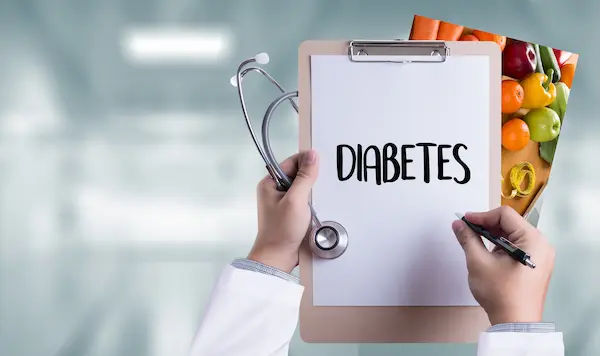Dangerous Blood Sugar Levels Explained
know about dangerous blood sugar, levels, causes and symptoms. Learn about how to manage them and know the effect of it on health.

Written by Dr. J T Hema Pratima
Reviewed by Dr. Shaik Abdul Kalam MD (Physician)
Last updated on 13th Jan, 2026

Introduction
Blood sugar, or glucose, is the main source of energy for your body. However, when blood sugar levels become too high or too low, they can pose serious health risks. Understanding dangerous blood sugar levels is crucial for maintaining good health, especially for people with diabetes or those at risk of developing it.
In this article, we’ll explain what dangerous blood sugar levels are, their symptoms, causes, and how to manage them effectively.
What Are Dangerous Blood Sugar Levels?
Blood sugar levels fluctuate throughout the day, but they should generally stay within a healthy range:
Normal range (fasting): 70–99 mg/dL
Prediabetes (fasting): 100–125 mg/dL
Diabetes (fasting): 126 mg/dL or higher
Dangerously High Blood Sugar (Hyperglycemia)
Mild hyperglycemia: 180–250 mg/dL
Severe hyperglycemia (medical emergency): Above 250 mg/dL (can lead to diabetic ketoacidosis in Type 1 diabetes or hyperosmolar hyperglycemic state in Type 2 diabetes)
Dangerously Low Blood Sugar (Hypoglycemia)
Mild hypoglycemia: Below 70 mg/dL
Severe hypoglycemia (medical emergency): Below 54 mg/dL (can cause confusion, seizures, or unconsciousness)
Both high and low blood sugar levels can be life-threatening if not managed promptly.
Symptoms of Dangerous Blood Sugar Levels
High Blood Sugar (Hyperglycemia) Symptoms
The symptoms of high blood sugar are:
Extreme thirst
Frequent urination
Blurred vision
Fatigue
Headaches
Nausea or vomiting
Fruity-smelling breath (a sign of ketoacidosis)
Low Blood Sugar (Hypoglycemia) Symptoms
The symptoms of low blood sugar are:
Shakiness or trembling
Sweating
Dizziness
Confusion
Rapid heartbeat
Hunger
Irritability
Weakness
Seizures or unconsciousness (in severe cases)
If you experience severe symptoms, seek medical help immediately.
Consult a Top Diabetic doctor
What Causes Dangerous Blood Sugar Levels?
Causes of High Blood Sugar
The causes of high blood sugar are:
Diabetes (Type 1 or Type 2): The body either doesn’t produce enough insulin (Type 1) or can’t use it effectively (Type 2).
Poor diet: Eating too many sugary or high-carb foods.
Lack of exercise: Physical inactivity can increase blood sugar.
Stress or illness: Infections and stress hormones can raise glucose levels.
Missed medication: Skipping insulin or diabetes pills can lead to spikes.
Causes of Low Blood Sugar
The causes of low blood sugar are:
Too much insulin or diabetes medication
Skipping meals or not eating enough
Excessive exercise without proper food intake
Alcohol consumption (especially on an empty stomach)
How Dangerous Blood Sugar Is to Your Health
The blood sugar, if present for a long time, affects the overall health of the body:
Long-Term Effects of High Blood Sugar:
Nerve damage (neuropathy) – Tingling, numbness, or pain in hands and feet.
Kidney damage (nephropathy) Can lead to kidney failure.
Eye damage (retinopathy) – May cause vision loss or blindness.
Heart disease and stroke – High sugar levels damage blood vessels.
Slow wound healing – Increases the risk of infections and amputations.
Effects of Severe Low Blood Sugar:
Loss of consciousness – Can be fatal if untreated.
Brain damage – Prolonged hypoglycemia may impair cognitive function.
Seizures – Requires emergency treatment.
How to Manage Dangerous Blood Sugar Levels
The management of high blood sugar is vital. Follow the tips below;
For High Blood Sugar (Hyperglycemia)
Monitor regularly: Check blood sugar levels frequently.
Stay hydrated: Drink water to help flush out excess sugar.
Take medication as prescribed: Never skip insulin or diabetes pills.
Eat a balanced diet: Focus on fibre-rich foods, lean proteins, and healthy fats.
Exercise regularly: It helps lower blood sugar naturally.
Seek medical help if needed: If levels remain high despite treatment, consult a doctor.
For Low Blood Sugar (Hypoglycemia):
Follow the "15-15 rule": Eat 15 grams of fast-acting carbs (glucose tablets, juice, honey) and recheck after 15 minutes.
Keep snacks handy: Always carry glucose gel, candy, or nuts.
Avoid skipping meals: Eat small, frequent meals.
Limit alcohol: Drink in moderation and never on an empty stomach.
Inform family/friends: Teach them how to help in case of severe hypoglycemia.
When to See a Doctor
Seek immediate medical attention if:
Blood sugar is above 250 mg/dL with symptoms like vomiting or confusion.
Blood sugar is below 54 mg/dL and doesn’t improve after treatment.
You experience frequent high or low blood sugar episodes despite following your treatment plan.
If you’re struggling to manage your blood sugar, consider booking a consultation with a diabetes specialist through Apollo 24|7. Early intervention can prevent complications.
Final Thoughts
Dangerous blood sugar levels can have serious consequences, but with proper monitoring, diet, and medication, they can be managed effectively. If you or a loved one has diabetes, staying informed and proactive is key to maintaining good health.
Consult a Top Diabetic doctor
Consult a Top Diabetic doctor

Dr. Ankitha
Internal Medicine Specialist Diabetologist
6 Years • MD INTERNAL MEDICINE
Bengaluru
Apollo Medical Center, Marathahalli, Bengaluru
(25+ Patients)

Dr. Vivek D
General Physician
4 Years • MBBS
Bengaluru
PRESTIGE SHANTHINIKETAN - SOCIETY CLINIC, Bengaluru

Dr. Arif Ahmed
General Physician/ Internal Medicine Specialist
9 Years • MBBS, MD (Genl. Med.)
Kolkata
MCR SUPER SPECIALITY POLY CLINIC & PATHOLOGY, Kolkata

Dr. Swaroopa Rani
General Physician/ Internal Medicine Specialist
9 Years • MBBS, MD (Internal Medicine)
Bengaluru
Apollo Medical Center, Marathahalli, Bengaluru

Dr. Sushith C
General Physician
2 Years • MBBS
Bengaluru
PRESTIGE SHANTHINIKETAN - SOCIETY CLINIC, Bengaluru

